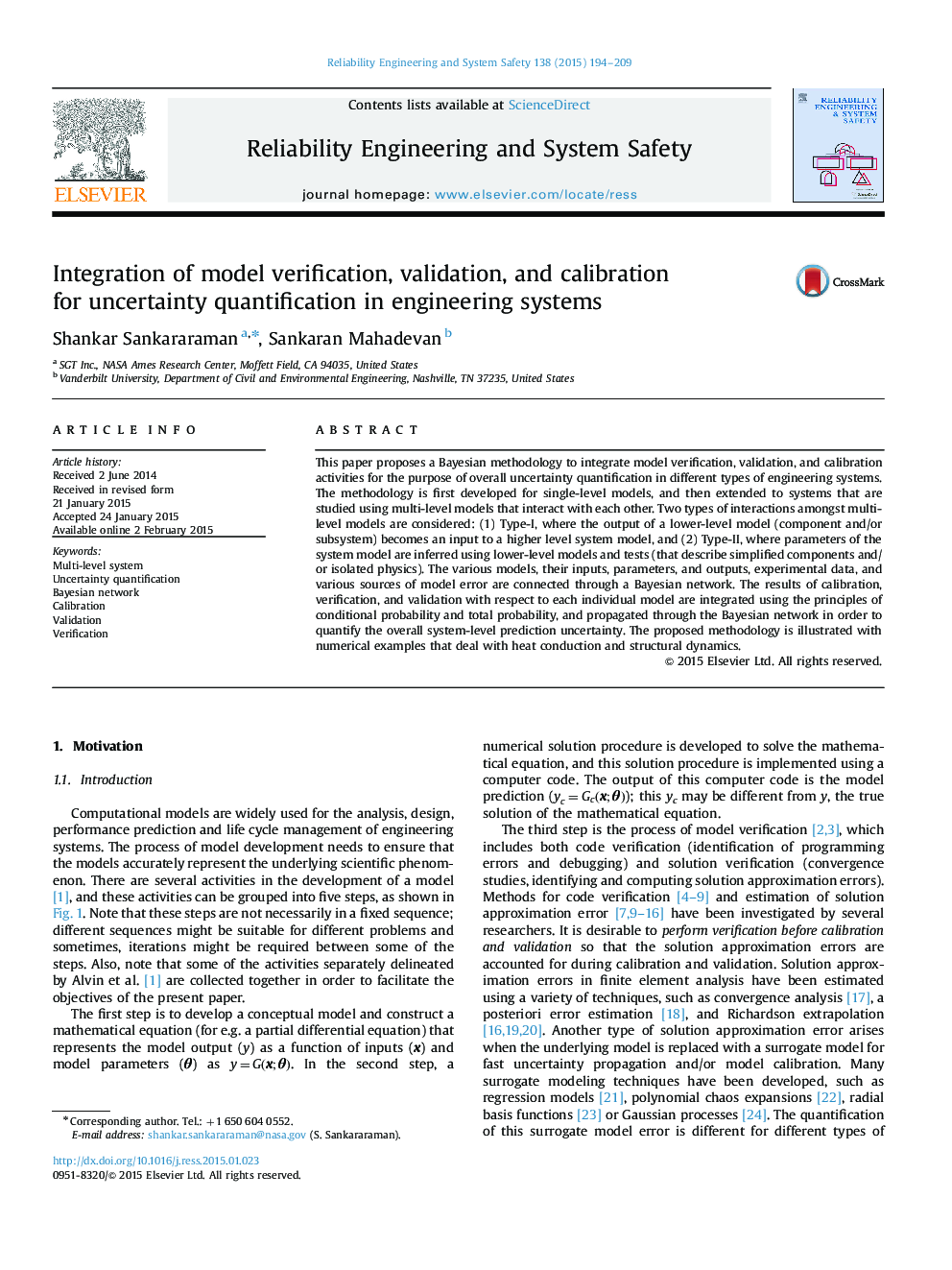| Article ID | Journal | Published Year | Pages | File Type |
|---|---|---|---|---|
| 7195653 | Reliability Engineering & System Safety | 2015 | 16 Pages |
Abstract
This paper proposes a Bayesian methodology to integrate model verification, validation, and calibration activities for the purpose of overall uncertainty quantification in different types of engineering systems. The methodology is first developed for single-level models, and then extended to systems that are studied using multi-level models that interact with each other. Two types of interactions amongst multi-level models are considered: (1) Type-I, where the output of a lower-level model (component and/or subsystem) becomes an input to a higher level system model, and (2) Type-II, where parameters of the system model are inferred using lower-level models and tests (that describe simplified components and/or isolated physics). The various models, their inputs, parameters, and outputs, experimental data, and various sources of model error are connected through a Bayesian network. The results of calibration, verification, and validation with respect to each individual model are integrated using the principles of conditional probability and total probability, and propagated through the Bayesian network in order to quantify the overall system-level prediction uncertainty. The proposed methodology is illustrated with numerical examples that deal with heat conduction and structural dynamics.
Keywords
Related Topics
Physical Sciences and Engineering
Engineering
Mechanical Engineering
Authors
Shankar Sankararaman, Sankaran Mahadevan,
